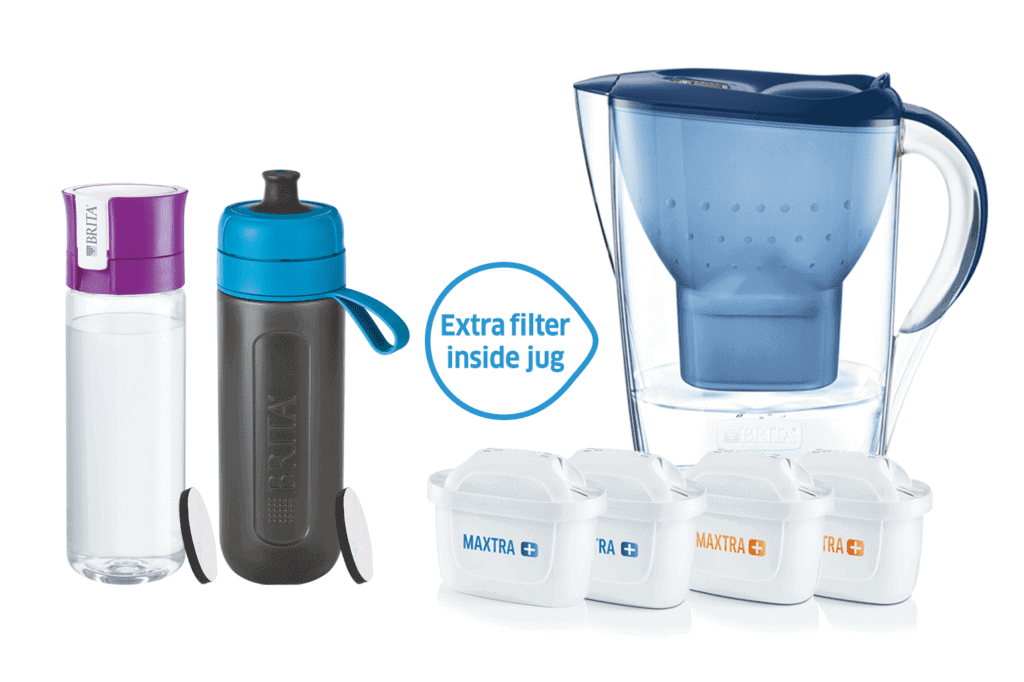Are you looking for a BRITA Water jug for your family?
I know a thing or two about tap water quality
In a past life, after I finished my university degree in Education, I worked for the Queensland Government’s ‘Waterwise’ section of (in those days) the Department of Natural Resources. I travelled all over Queensland & New South Wales teaching kids in primary schools all about water. There is a very good chance that if you went to primary school in Queensland, you and your school would have had a visit from me! Thus, I feel well suited to talk about water and water quality locally.
I taught students about where our water comes from, how we collect it, store it, treat it, reticulated (get it to you) and deal with waste. And the good news is, it’s done well – in fact, it’s done to Australian Drinking Water Guidelines that are endorsed by the World Health Organisation!
As a Brisbane family, we don’t need to worry too much about the quality of our drinking water. We are blessed with a safe, fresh water supply that comes directly to our taps with no effort on our part.
But that is only the start of the story….
Can your water be cleaner?
Across SE Queensland, water treatment takes place at 46 locations, including Molendinar and Mudgeeraba on the Gold Coast, Mt Crosby to the west and North Pine to the north of Brisbane, and Landers Shute on the Sunshine Coast.
Whilst our water is treated well and perfectly safe and fresh when it leaves the water treatment plant, it has quite the long journey to get to the tap in your home. Along this journey there is the opportunity to collect ‘deposits’ (potentially heavy minerals) along the way.
How clean your water is when it gets to your home will depend on the pipes that brought it to you… including the pipes in your own home. How old are the pipes in your home? Can you be sure of what your pipes are adding to your water?
It’s worth you doing some further investigating at your house!
The problem with bottled water
With the growing concern around the use of plastic and particularly plastic water bottles, it’s time to think about alternatives to single use plastic water bottles when we want to drink filtered water.
Plastic Facts:
- A single use plastic bottle that makes its way into the ocean can take 450 years to break down.
- 11% of household waste is plastic, 40% of which is plastic bottles.
- By 2050, if we continue with our love affair with plastic, there may be more plastic than fish in the ocean.
- Australians buy more than 118,000 tonnes of plastic drink bottles a year
It’s reassuring to know that you can achieve clean water without having to fork out a tonne of money and add to the global plastic problem destroying the planet! Store bought water in single use plastic water bottles is no longer a sustainable solution to a quick drink to quench our thirst.
Filtered water – a better alternative to plastic water bottles
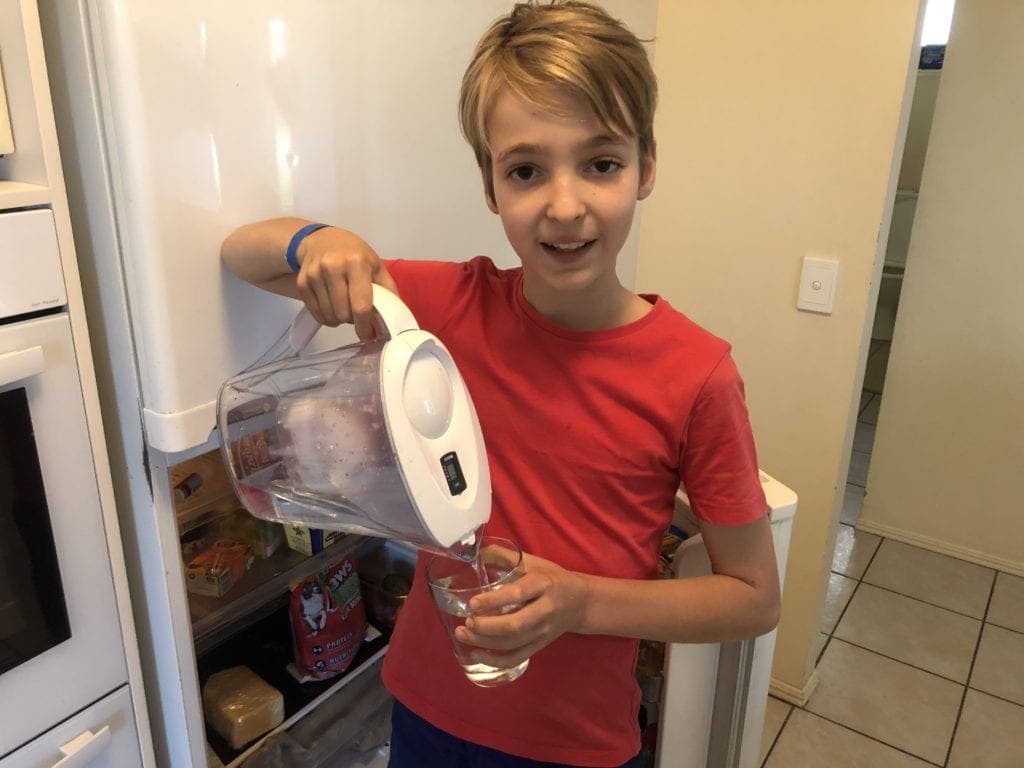
Determined to use our own multi-use water bottles and fill them with our own ‘filtered at home’ water from our BRITA jug, I pulled out our reusable water bottles and put the BRITA to the test.
We read the instructions and were impressed to learn that BRITA water filters are German engineered and designed to provide expert levels of filtration for different water conditions around the world. With 50 years in the water filter industry, BRITA is recognised as a global industry leader. (I remember the brand from my childhood!)
BRITA’s unique jug filtration technology for both the MAXTRA+ and MAXTRA+ Limescale filters powerfully transforms tap water, reducing contaminants such as heavy metals (lead and copper), chemicals (chlorine) and other unwanted minerals and sediments.
We do have a problem with limescale in our house (hello new shower head every 2 years – I wonder if they have a ‘fix’ for that?) so I was pleased to see that the filter would remove these nasties from our drinking water!
As well as being ace at removing contaminants, it also was super sensible when it came to cost – BRITA filtered water only costs an average of 9 cents per litre, representing a fraction of the cost of bottled water. Water in single use plastic bottles can range from $1 – $5 for a 375ml bottle (Ekka prices *insert eye roll emoji!)
So, what is the BRITA water filter really like to use?
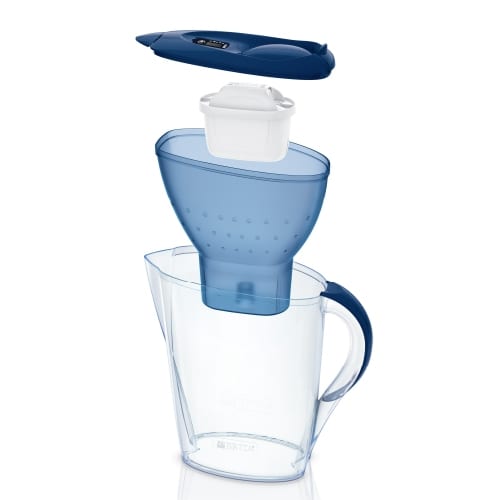
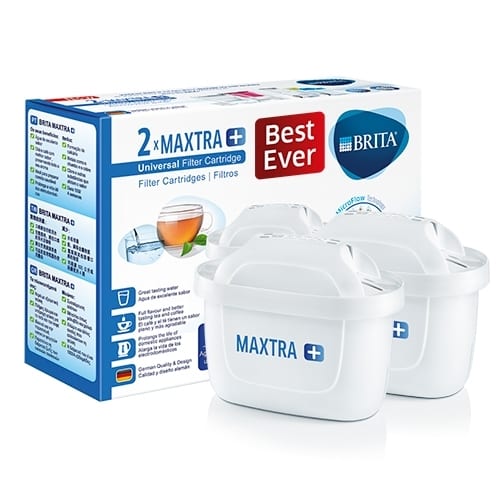
We were gifted with the new Marella 2.4 litre jug and 2 of the new MAXTRA+ Limescale Filters.
The new Limescale filter is the first of its kind in Australia, removing 50% more Limescale than the standard MAXTRA+ filters, whilst effectively reducing heavy metals, chlorine and some sediments.
We filtered the water for our kettle too as it helps to prolong your appliance’s life by reducing Limescale build-up.
We’ve had the jug for around 3 weeks and have used about half of the first filter… (there’s a handy indicator on the top of the lid that shows you how much life is remaining on each filter!). Generally, the filters last for 4 – 6 weeks (or around 150 litres) before they should be changed to ensure they are working at their best.
So why should we use BRITA water filters?
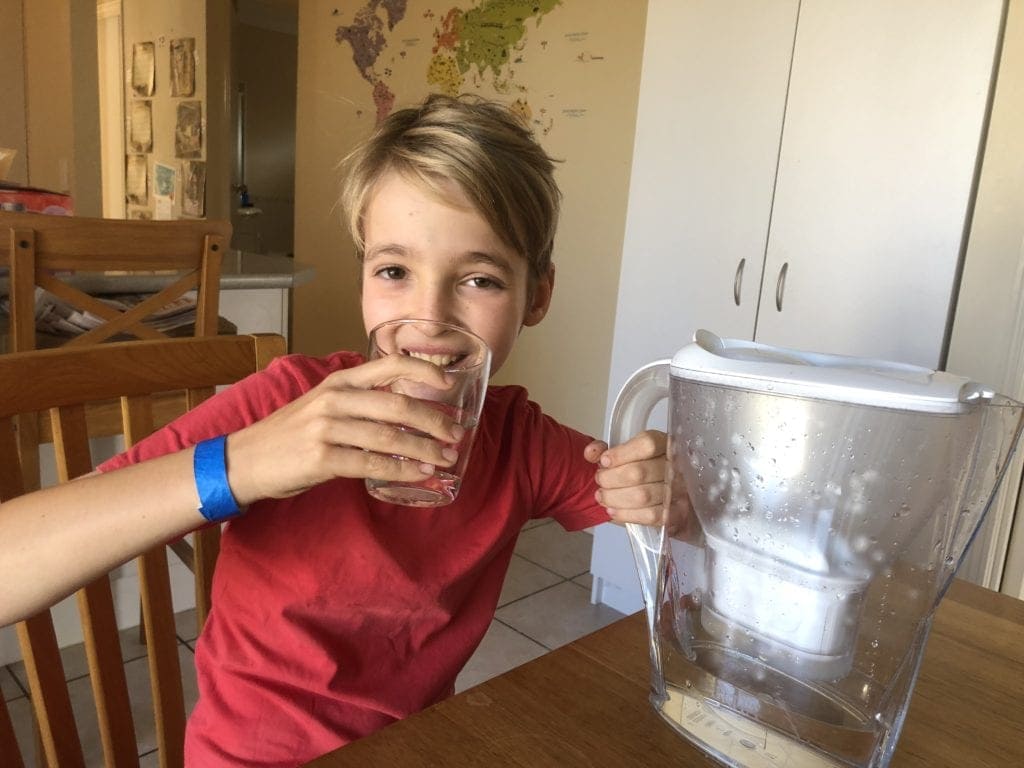
For our family, there are really three stand out features for using a BRITA water filter.
- Sustainability – Save our planet – each BRITA filter can produce 150 litre of fresh tasting water, which in turn means that families can reduce the amount of bottled water they consume (Australian stats suggest this is around 400 x 375ml water bottles per year).
- Family health – whilst our water leaves the water treatment plant clean, the pipes that carry it to you may not be. Filtering water before our kids drink it removes nasties that they definitely should not be drinking.
- Savings – when you stop buying single use plastic bottles you are saving money too!
How much do the BRITA water filters cost?
Prices for the BRITA water filter jugs start at $27 for the Aluna Jug Frosted White 2.4L – you can shop the range here
Prices for the filter cartridges start from $8.25 (multi-pack buy) – you can shop the range here.

